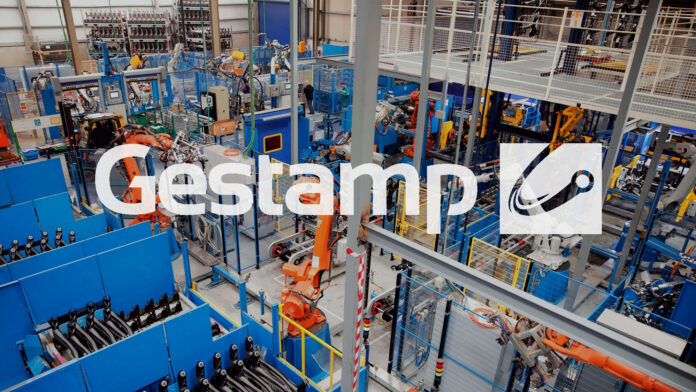Spain-based automotive components manufacturer Gestamp has announced a multi-year EU-funded research project with two local 5G/IoT specialists to develop a new “operations model” for private 5G and industrial IoT to enable the virtual management of plant operations in the automotive sector. Gestamp warned the European industrial sector will lose its competitive edge to rival powers if it fails to take advantage of the production flexibility afforded by Industry 4.0 technologies. The trio are pinning their hopes on 5G and IoT.
Gestamp has recruited communication systems provider Teltronic and IoT engineering company Embeblue to the cause, which goes under the title INDUSTRY5.G, and has been selected by the Spanish government’s UNICO SECTORIAL 5G 2023 programme, funded by the European Union’s coronavirus-response Recovery Fund. It has been set a term of 33 months. A statement said: “The main objective is to develop a communications system and virtual applications that, through 5G technology, will allow the plant to be controlled in real time.”
A press note said the Spanish government’s decision to reserve spectrum for “self-provisioned” private LTE and 5G networks, as set out in the National Frequency Allocation Table (CNAF), presents a “unique opportunity” for the local industrial sector. Gestamp and co said they want to develop a “new concept of ‘smart factory’” that will use private 5G networks, 5G-based IoT devices, and “virtual tools and models” for data processing and analytics – to enable “real-time control of processes, flexible and autonomous manufacturing, and excellence in operations”.
They stated: “The automotive sector will be the testing ground for this research project. It is a strategic sector for the country, which between vehicle manufacturers and the components sector contributes 10 percent of Spanish GDP and employs approximately nine percent of the active population. Although the initiative aims to be a driving force to promote sector digitalisation and to be a benchmark in the automotive sector, the ambition is that the model can also be replicated in other industries.”
They said their R&D remit is three-fold: to apply “new connectivity models” on private 5G for “simple, flexible, and low-cost installation in industrial environments”; a standardised and interoperable solution to provider the right service levels and cybersecurity measures; and a “digital tool” for managing the information flow of production processes and monitoring factory operations. “This virtualisation tool will make it possible to use the information to simulate possible scenarios to facilitate decision-making in real-time,” they declared.
Jorge Vázquez, project coordinator for Gestamp, said: “The European and Spanish industrial sector needs to increase its competitiveness in the face of the risk of losing leadership to other regions. The only way for a competitive industry is flexibility in operations and the development of technology that allows for more resilient factories through a more agile, efficient and sustainable operations model with which to manage the uncertainty and variability that characterise today’s markets.”
Mikel Meoki, founder of Embeblue, said: “A new massive IoT wireless sensor system will be developed specifically for the complex working conditions of industrial production plants, cyber secure, easy to deploy and with unified architectures and protocols; a technology not currently available on the market that provides flexibility and mobility for operations.”
Alfredo Calderón, R&D director at Teltronic, said: “These three axes expand the scenario of use cases in different verticals and 5G becomes a lever of transformation for the industry, with benefits not only concerning products and processes but also at the strategic level since the smart factory will convert large amounts of complex data into information that helps with crucial high-level decisions for the organisation.”

